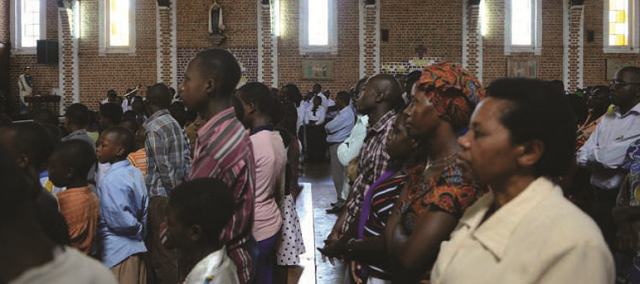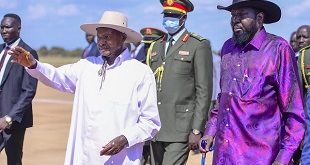
Bishops’ statement on genocide seen as positive
In 1994, violence erupted in Rwanda after a plane carrying then president Juvenal Habyarimana was shot down. Thousands of ethnic Tutsis, a minority group who became a target after Habyarimana’s death, sought refuge in the country’s Catholic and Protestant churches.
Hutu militia surrounded the churches, shooting into the crowd, throwing grenades into the building, and killing those inside with machetes. According to witness accounts, many died at the hands of priests, nuns, and clergymen.
“More Rwandese citizens died in churches and parishes than anywhere else,” the group African Rights, wrote in an account of the violence in 1995.
More than two decades later and several calls for an apology, the Catholic Church in Rwanda has apologised for its role in the genocide that claimed the lives of more than 800,000 lives, one tenth of Rwanda’s population.
“We apologise for all the wrongs the church committed. We apologise on behalf of all Christians for all forms of wrongs we committed. We regret that church members violated [their] oath of allegiance to God’s commandments,” the Conference of Catholic Bishops said in a statement that was read aloud in Rwandan parishes during Sunday services on Nov. 20.
“Forgive us for the crime of hate in the country to the extent of also hating our colleagues because of their ethnicity. We didn’t show that we are one family but instead killed each other.”
The Church, which has been under pressure to acknowledge its role, stopped short of admitting any complicity with government forces who planned and carried out attacks against the Tutsis.
While critics have accused local level Church officials of planning and carrying out the violence, the Church’s national leaders have mostly been blamed for inaction –not doing enough to protect those seeking shelter. The Vatican has also been accused of sheltering Rwandan clergymen that were involved in the killings.
“We know that there are church members who played a role in the genocide, killed people and looted their properties. What we don’t agree with is that the church itself played a role in the genocide,” said Bishop Philippe Rukamba, chairperson of the Catholic Episcopal Conference of Rwanda.
He said the statement was timed to coincide with the formal end on Sunday of the Holy Year of Mercy declared by Pope Francis to encourage greater reconciliation and forgiveness in his church and in the world.
The bishops’ statement is seen as a positive development in Rwanda’s efforts at reconciliation.
Tom Ndahiro, a Rwandan genocide researcher, said that he hoped the church’s statement would encourage unity among Rwandans.
“I am also happy to learn that in their statement, bishops apologise for not having been able to avert the genocide,” he said.
****
editor@independent,co,ug
 The Independent Uganda: You get the Truth we Pay the Price
The Independent Uganda: You get the Truth we Pay the Price



